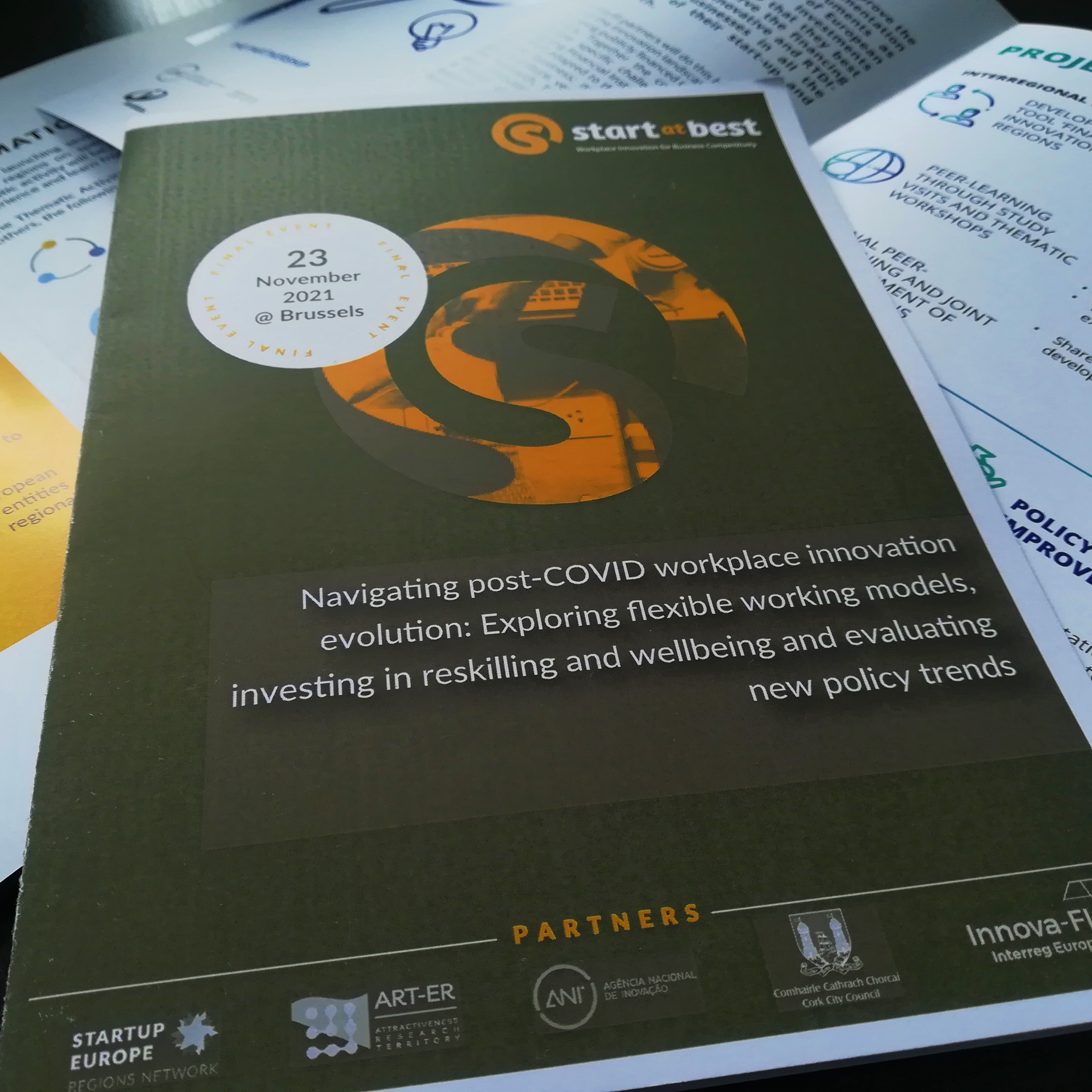The first speaker, Erik Koch, from EISMEA, introduced the topic of workplace innovation by recalling the current challenges, from the Coronavirus crisis to the increase of competitiveness. Nowadays, workplace innovation must be seen as a tool that enhances productivity and well-being by including both technological and non-technological aspects. Currently EISMEA groups together three relevant programmes: the European Innovation Council (EIC), the Single Market Programme, and the Interregional Innovation Investments Initiative. Start at Best will be closing in a month, a project that, while having a limited budget, has proven to be highly effective by helping small businesses with small vouchers leading to a high impact on innovative practices.
In the ongoing context, the European innovation ecosystems must continue improving, and workplace innovation is one of the main elements in this development. Innovation agencies must keep learning from each other and work as intermediaries that support companies. In this regard, innovation agencies’ initiatives will find their place under the European Innovation Ecosystem program.
One key advancement for regional development practitioners is that thanks to the European Institute of Innovation & Technology’s (EIT) Regional Innovation Scheme (RIS) Joint Innovation Programmes will gain further relevance. Consequently, regions will play a greater role by providing initiatives and good practices on innovation, while the European Union will give the funding – a bottom-up approach that will keep being fostered in the future.
Further dwelling on innovation during the post-pandemic era, Stavroula Demetriades from Eurofound presented their findings on innovative practices leading to customer satisfaction, improved economic performance, enhanced reputation and talent attraction. The three key takeaways were that (1) it is crucial to design interesting and challenging jobs; (2) high expectations towards employees can be held while offering motivation; and (3) involving staff in decision making is essential to encourage innovation. It was also highlighted that national and regional innovation agencies are needed to further encourage pro-innovation practices, to encourage networking and innovative clusters.
Benedikt Bloemeyer, from Allied for Startups, recalled the huge impact the Coronavirus crisis has had in the start-up's ecosystem, where the workplace and private life have overlapped. Three interesting start-ups were mentioned as innovative solutions providers, namely, Remote, Career Karma and Nomad list. Innovation will be key in the workplace of the future, where tasks will be moved from office to online, with technology constantly present. In a context where entrepreneurs and start-ups like to be close to their peers and to cross-fertilize, now is the time to identify which platforms are the best.
On digital skills and workplace culture, Ondrej Socuvka from Google EU proposed different tools to adapt to the ever-increasing change of the start-up ecosystem. Skill renewal and effective tool usage will prove essential if you want to make the most of the start-up opportunities. The tools proposed were the following, (1) the online course on Fundamentals of digital marketing; (2) IA Business check-up tool; and (3) the Grow with Google platform.
Finally, João Mendes Borga from ANI, made an interesting recap on the European unicorns’ landscape, with a national focus on Portugal. In this State, start-ups have grown exponentially during the last 5 years, companies that “no longer need factories, but brains”. Skill shortage was presented as the main burden for the survival of this ecosystem; however, the renewal of the start-up cycle can be an interesting solution.
All the morning sessions were moderated by Chiara Frencia, Board Member of Startup Europe Regions Network (SERN), one of the partners organising the Start at Best final event together with Attractiveness Research Territory (ART-ER), Agência Nacional de Inovação (ANI), Cork City Council, and Innova-FI Interreg Europa.
Further information:
